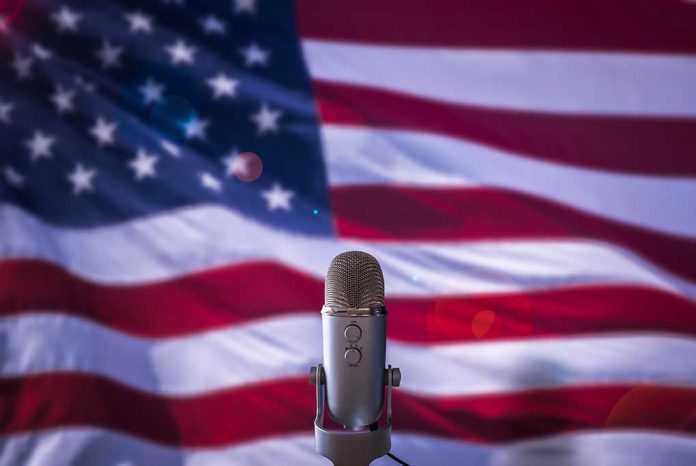
Former President Barack Obama’s recent speech in Milwaukee reignites controversy over Trump’s Charlottesville remarks, sparking debate on political messaging and fact-checking.
At a Glance
- Obama referenced the “very fine people” controversy during a campaign rally for VP Harris
- Trump’s original Charlottesville statements explicitly condemned neo-Nazis and white supremacists
- The speech highlighted concerns about Trump’s policies toward religious minorities
- Pew Research shows American Jewish voters currently favor Harris over Trump
- The incident underscores the importance of accurate historical record-keeping in political discourse
Obama’s Milwaukee Speech Revives Charlottesville Controversy
On November 3, 2024, former President Barack Obama delivered a speech in Milwaukee, Wisconsin, in support of Vice President Kamala Harris’s campaign. During his address, Obama revisited the controversial “very fine people” remarks attributed to former President Donald Trump following the 2017 Charlottesville incident. This reference has reignited debate over the accuracy of political messaging and the importance of fact-checking in electoral campaigns.
Obama’s speech, aimed at rallying support for Harris among religious minority voters, included broader criticisms of Trump’s policies and past statements. The former president’s remarks have drawn attention to the ongoing political divide and the potential impact of religious minority voters in battleground states like Wisconsin.
It’s not a hoax. Trump literally called Charlottesville protesters and neo-Nazis “very fine people.”https://t.co/8hObb7wzev https://t.co/YWDv3SIfNF pic.twitter.com/ltRntwEQ2Y
— Berny Belvedere (@bernybelvedere) November 4, 2024
Fact-Checking the “Very Fine People” Narrative
Despite Obama’s reference to the “very fine people” statement, official transcripts and video evidence from Trump’s original Charlottesville remarks tell a different story. The complete record shows that Trump specifically condemned neo-Nazis and white supremacists during his comments about the incident.
“Maybe you’re Muslim-American or Jewish-American and you are heartbroken and furious about the ongoing bloodshed in the Middle East and worried about the rise of antisemitism. Why would you place your faith in somebody who instituted a so-called Muslim ban? Who sat down for pleasantries with Holocaust deniers, who said that there were very fine people on both sides of a white supremacist rally?” – Barack Obama
Contrary to the narrative pushed by Obama, Trump’s actual “very fine people” comment referred specifically to peaceful protesters on both sides of the Confederate statue debate, which was the initial reason for the Charlottesville gathering before it was overtaken by extremist groups. This discrepancy highlights the importance of consulting primary sources and full transcripts when evaluating political claims.
Impact on Religious Minority Voters
Obama’s speech included warnings to Jewish and Muslim voters about Trump’s track record with religious minorities. Recent Pew Research data shows that American Jewish voters currently favor Harris over Trump by a margin of 65% to 34%. This demographic could play a crucial role in battleground states like Wisconsin, where religious minority voters may significantly influence the election outcome.
“When Donald Trump loses this election, it will be because Americans from all faiths, ethnicities, and backgrounds came together to turn the page on the divisiveness he demonstrates every day.” – Morgan Finkelstein
The controversy surrounding Obama’s speech and the continued reference to the Charlottesville incident, despite available evidence contradicting mainstream narratives, underscores the complex nature of political messaging and the challenges voters face in discerning fact from rhetoric. As the election approaches, the importance of fact-checking and accurate historical record-keeping in political discourse becomes increasingly evident.
Sources:
- Barack Obama Issues Trump Warning for Jewish and Muslim Voters
- Barack Obama Tries Debunked ‘Very Fine People’ Hoax in Closing Message



